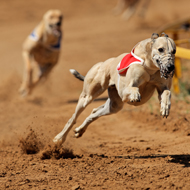
Battersea Dogs & Cats Home responds to Post Implementation Review
Battersea Dogs & Cats home has joined those welfare charities concerned about Defra's long-awaited review of the welfare of racing greyhounds.
The charity is particularly concerned about agreements with the Greyhound Board of Great Britain (GBGB) to deliver required improvements in areas like trainers' kennels, where greyhounds spend a large proportion of their time.
"These agreements do not even extend to the "independent" tracks where the prospect of welfare improvement is now even more remote," said Peter Laurie, Battersea's director of operations.
"Only time will tell whether GBGB will honour its commitments, but with no prospect of publication of data until 2018 and no firm commitments that Regulation will follow it is hard to be optimistic."
Published last week (15 September), the Post Implementation Review of the 2010 Welfare of Racing Greyhounds Regulations reviews the current regulations to see how effective they have been.
Responding to the review, Paula Boyden, Dogs Trust veterinary director, said she was 'deeply concerned' that Defra had failed to take notice of advice from welfare charities.
She added the government were not treating the issue with the severity it deserves. "Their proposed changes are minimal and lack the urgency needed to improve the industry," she said.
The regulations were first introduced to improve the welfare standards of racing greyhounds by establishing a set of minimum welfare standards and to improve the traceability of greyhounds during and after their racing life.
While Battersea Dogs & Cats Home say the regulations have delivered some notable welfare improvements since their introduction, it has long argued that they do not go far enough.
"The report was the perfect opportunity for the Government to improve the welfare of that nation's racing greyhounds yet it represents a very disappointing missed opportunity," said Peter.



 The Veterinary Medicines Directorate (VMD) is inviting applications from veterinary students to attend a one-week extramural studies (EMS) placement in July 2026.
The Veterinary Medicines Directorate (VMD) is inviting applications from veterinary students to attend a one-week extramural studies (EMS) placement in July 2026.